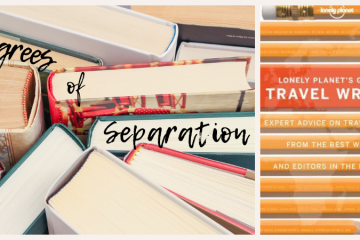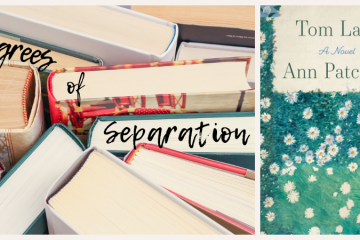Earlier this year, I heard Australian author Claire Zorn speak about her YA novel The Sky so Heavy at the Perth Writers Festival. I bought a signed copy for my teenage son, only to discover he had already borrowed it from the library (‘But I’ll read it again. It’s good.’) – and wound up reading it myself.
About the same time, I read a number of books about life in Iraq, including Baghdad Diaries by Nuha Al-Radi, as research for a current writing project. At first glance, The Sky so Heavy and Baghdad Diaries have little in common. Published a decade apart, one is a young adult novel set in the Australian Blue Mountains in a dystopian future. The other is an Iraqi artist’s memoir about surviving the 1991 Gulf War and the ensuing embargo on her country.
The Sky so Heavy‘s protagonist, Fin, is an ordinary Australian teenager, sleeping in and almost missing his bus, having a crush on a girl, and trying to survive high school after his mum walks out. That is until an unnamed country fires a nuclear missile, sparking a nuclear winter. When his father disappears, Fin must care for his younger brother Max. Conditions rapidly deteriorate and life becomes a matter of survival.
When the electricity fails, Fin and Max wear multiple layers of clothing to keep warm and cook in the fireplace. Once their wood supply runs out, they resort to burning books and furniture. The local store dramatically inflates its prices, and people resort to violence and theft to obtain basic necessities. Communication with the outside world becomes problematic, and a lack of basic medical care results in preventable deaths. Deciding that the only way to survive is to leave, Fin and Max join the thousands who have been displaced by the disaster.
Claire Zorn has created a fast-paced novel about an intriguing and plausible scenario. But few of us in Australia imagine it actually happening to us in our country.
For others across the globe, including Nuha Al-Radi who writes of her experiences in Baghdad Diaries, this is (nuclear winter aside) already their reality. Like Fin, Nuha Al-Radi describes ‘saving gas by cooking and heating food in the fireplace’, being without water, the exorbitant increases in food prices, lack of basic medical care and a sense of hopelessness:
For the first time, I think there is no hope left. Life is going from bad to worse with no relief in sight. (p.56)
For Nuha Al-Radi and her fellow citizens, this is no hypothetical situation. This was her lived experience for many years, until finally being granted refuge in another country. And it is the reality for millions of asylum seekers worldwide.
The Sky so Heavy raises interesting questions, none of which have straightforward answers. Who decides who can cross a border into safety? How do we decide who and how many should be granted asylum? Where are the so called ‘queues’? What are our rights – and what are our responsibilities?
It is easy to be an armchair expert, although I suspect any answers arriving too quickly or conveniently will also be too simplistic. Understanding the issues in their complexity may take me a lifetime, and means listening to all sides of the discussion whether or not they sit comfortably. Surely this includes the stories of those who seek refuge in a country far from home. As Harper Lee wrote:
You never really understand a person until you consider things from his point of view … Until you climb inside of his skin and walk around in it.
Perhaps then we will find a way to respond with both wisdom and compassion.




Welcome to the blogosphere Melinda – what a powerful start!
Love the concept of Treefall writing and an exploration of those seeking refuge slots in perfectly.
Can’t wait to read more of your posts.
Jacquie
Hi, Jacquie. Thank you so much for taking the time to check out Treefall Writing!
[…] You can find a more detailed review of The Sky so Heavy elsewhere on my blog. […]